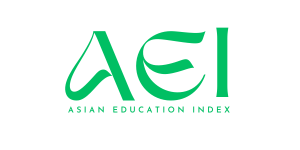Challenges Faced In The Current Methodologies Of Developing Physical Qualities In Students
DOI:
https://doi.org/10.62480/jpip.2024.vol33.pp30-34Keywords:
challenges, technology, methodologyAbstract
The article describes challenges encountered in the existing methodologies used to develop physical qualities in students. As physical education evolves, educators face various obstacles that hinder the effectiveness of traditional and modern approaches. The paper aims to identify these challenges, analyze their impact on student outcomes, and propose potential solutions to enhance the development of physical qualities in educational settings. Addressing the challenges in current physical education methodologies is essential for fostering the holistic development of students. The author states that by identifying and overcoming these obstacles, educators can create more effective and engaging programs that promote lifelong physical fitness and well-being.
References
Casey, A., Goodyear, V. A., & Armour, K. M. (2017). Digital technologies and learning in
physical education: Pedagogical cases. Routledge.
Fairclough, S., & Stratton, G. (2005). Physical activity levels in middle and high school
physical education: A review. Pediatric Exercise Science, 17(3), 217-236.
Hardman, K., & Marshall, J. J. (2000). The state and status of physical education in schools
in international context. European Physical Education Review, 6(3), 203-229.
Kirk, D. (2010). Physical education futures. Routledge
Lamb, P., & Lane, K. (2013). Personalised learning and physical education. In J. Quay & A.
Mooney (Eds.), Theory and Practice in Physical Education: Contemporary Issues (pp. 101-
. Australian Council for Health, Physical Education and Recreation.
Morgan, P. J., & Hansen, V. (2008). The relationship between PE teachers' and students'
motivational climates: Perspectives on the role of teachers and their teaching. European
Physical Education Review, 14(2), 197-218.
Ntoumanis, N., Pensgaard, A. M., Martin, C., & Pipe, K. (2004). An ideographic analysis of
amotivation in compulsory school physical education. Journal of Sport and Exercise
Psychology, 26(2), 197-214.
Qi, J., & Ha, A. S. (2012). Inclusion in physical education: A review of literature. International
Journal of Disability, Development and Education, 59(3), 257-281.
Utebaev T., Sarsenbaeva Z. Sprachliche analyse von sprichworten. Berlin Studies
Transnational Journal of Science and Humanities. Vol. 1 Issue 1.5 Pedagogical sciences.
Islomovich I. T. et al. Perspectives of employing world experience in providing academic and
financial independence to higher education //Horizon: Journal of Humanity and Artificial
Intelligence. – 2023. – Т. 2. – С. 232-235.
Downloads
Published
Issue
Section
License

This work is licensed under a Creative Commons Attribution-NonCommercial 4.0 International License.
User Rights
Under the Creative Commons Attribution-NonCommercial 4.0 International (CC-BY-NC), the author (s) and users are free to share (copy, distribute and transmit the contribution).
Rights of Authors
Authors retain the following rights:
1. Copyright and other proprietary rights relating to the article, such as patent rights,
2. the right to use the substance of the article in future works, including lectures and books,
3. the right to reproduce the article for own purposes, provided the copies are not offered for sale,
4. the right to self-archive the article.













